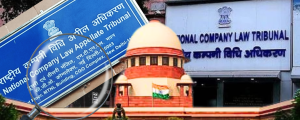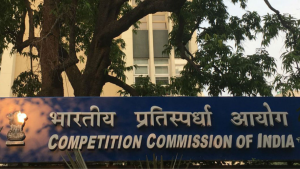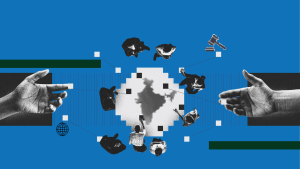
Menu
Menu

Menu
The Inauguration of the Rule of Law Project
The launch of the Rule of Law Project and website by DAKSH at Bhartiya Vidya Bhawan on Saturday, 7 February, 2015, was a gathering of well-wishers, members from the legal community, researchers, and citizens concerned with governance. The Rule of Law Project at DAKSH studies pendency and backlog of cases in the courts in India.
The launch was inaugurated by Professor Rajeev Gowda (Member of Parliament), Mr. S. S. Naganand (Senior Counsel) and Mr. Shri Kumar (ex-DGP of Karnataka and former Commissioner of the Central Vigilance Commission).
The introduction by Mr. Harish Narasappa, co-founder of DAKSH, spoke of how for the group at DAKSH, this endeavour was an effort born of concern with the maintenance of the ideal of rule of law and experience with the legal system. The Rule of Law Project is composed of an interdisciplinary group of social scientists, data analysts, and lawyers, and hopes to bring together a citizen-centred approach to the understanding of the problem of delays in the courts. DAKSH is concerned with the effects of delay in the courts on the common citizen of the country and is producing a database built from publicly available information from the courts themselves. DAKSH has currently collated data from six High Courts: Karnataka, Hyderabad, Delhi, Madras, Gujarat, and Orissa. The project over the next twelve months will cover all 24 High Courts, the Supreme Court, and five randomly selected District Courts, that will be available on the website. Mr. Narasappa spoke of the need to create a scientifically maintained database that would yield a closer and sustainable understanding of the problem of pendency. In addition to the database, DAKSH will also work on a series of human interest stories of the socio – economic effects of judicial delay, in consultation with other members of civil society.
Professor Rajeev Gowda spoke of the extensive work done by DAKSH in the last few years on voters’ perception and the performance of MLAs and MPs, and the value of this work towards creating a deeper understanding of the voters’ needs and responses. He also spoke of the value of linking of DAKSH’s research with newspapers such as The Times of India and Vijay Karnataka, allowing for stimulating debate and discussion in the public domain on what the common citizen hopes for from their elected representatives. In light of this, Professor Gowda spoke of the necessity of the Rule of Law Project that would also allow for debate on systems of governance and the ideal of the rule of law that upholds justice in India. He spoke of how this data based approach to pendency is novel and can have very positive consequences.
Mr. Kishore Mandyam, co – founder of DAKSH, spoke of his interest in the project as arising out of a concern for the common citizen for whom delay in the courts is not only a matter of legal concern but a social one. He analysed the data set produced by DAKSH, spanning two months of data from six High Courts, and revealed that different courts have different systems of data management. He said that it was tantamount that this data on cases that are in process in the legal system be made better available. For example, the High Court of Karnataka had a superbly maintained data base that was user friendly, while other courts did not have very basic information that are important for an understanding of delay, such as the date of institution for different cases. He provided a series of analytics on the numbers of cases in different High Courts, and figures of average pendency and backlogs.
Mr. Naganand spoke of the quality of judges in the Indian legal system, and maintained that he felt that while the data would assist in improving the primary problem of pendency and spur people into action, it was important for DAKSH to expand the breadth of its research. He said a look at the commonly recognised problems of the judiciary would be a necessary addendum to the Rule of Law Project.
Mr. Srikumar spoke of his experiences as DGP and felt that the data would help in increasing visibility of this problem to the public and would push the administration into taking action. He offered his assistance to the project and expressed his sense that it was important to have a sense of the processes that precede the legal system, for example the work of the police, and the life cycles of cases before they arrive in the courts. He expressed solidarity with this project and said that delay needs to be solved by this generation and not spread to the next.
Mr. Narasappa concluded that the DAKSH Rule of Law Project was eager to expand their approach and methodology and looked forward to the coming year in which further data would be released and analytic reports produced, in the public domain. The programme ended with a vote of thanks from Mr. Narasappa urged the legal and social scientific community to lend the team their inputs and support.
The views expressed in this article are solely those of the author’s and they do not represent the views of DAKSH.

Kavya Murthy
RECENT ARTICLES


Testing the Waters: Pre-Implementation Evaluation of the 2024 CCI Combination Regulations
Ritima Singh
December 18, 2024

Not Quite Rocket Science
Surya Prakash B.S
November 12, 2024

Administration of justice needs an Aspirational Gatishakti
Surya Prakash B.S
October 24, 2024

-
Rule of Law ProjectRule of Law Project
-
Access to Justice SurveyAccess to Justice Survey
-
BlogBlog
-
Contact UsContact Us
-
Statistics and ReportsStatistics and Reports
© 2021 DAKSH India. All rights reserved
Powered by Oy Media Solutions
Designed by GGWP Design